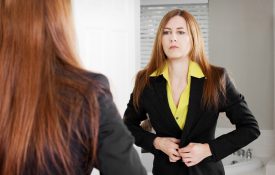-
Happiness Doesn’t Bring Good Health, Study Finds
The New York Times: Go ahead and sulk. Unhappiness won’t kill you. A study published on Wednesday in The Lancet, following one million middle-aged women in Britain for 10 years, finds that the widely held view that happiness enhances health and longevity is unfounded. “Happiness and related measures of well-being do not appear to have any direct effect on mortality,” the researchers concluded. “Good news for the grumpy” is one way to interpret the findings, said Sir Richard Peto, an author of the study and a professor of medical statistics and epidemiology at the University of Oxford. ...
-
In Texting, Punctuation Conveys Different Emotions. Period.
The Wall Street Journal: Technology is changing language, period The use of a period in text messages conveys insincerity, annoyance and abruptness, according to a new study from the State University of New York Binghamton. Omitting better communicates the conversational tone of a text message, the study says. As with any study by university researchers, though, it’s not that simple. The study found that some punctuation expresses sincerity. An exclamation point is viewed as the most sincere. (I overuse exclamation points!) “It’s not simply that including punctuation implies a lack of sincerity,” said the study’s lead author, Celia Klin, an associate professor of psychology at Binghamton.
-
How Your Boss Can Raise Your Blood Pressure
TIME: Every time your boss bums you out, your heart takes a hit, finds new research published in the Journal of Occupational Health Psychology. And the bad health effects linger long after you leave the office. ... “This is important, because this now speaks to more than just an instantaneous stress response,” says study co-author E. Kevin Kelloway, Canada Research Chair in Occupational Health Psychology at Saint Mary’s University. When a boss berates you, the effect “carries over, and it doesn’t go away at night.” Read the whole story: TIME
-
Poverty Dampens Genetic Influence on IQ, in the US
An analysis of data gathered from 14 independent studies indicates that the influence of genes on intelligence varies according to people’s social class in the US, but not in Western Europe or Australia. The findings are published in Psychological Science, a journal of the Association for Psychological Science. Research suggests that genes and environment both play a critical role in shaping a person’s intelligence. A longstanding hypothesis in the field of behavioral genetics holds that our potential intelligence, as set by our genes, is more fully expressed in environments that are supportive and nurturing, but is suppressed in conditions of poverty and disadvantages.
-
Doing small acts of kindness may lower your stress
CBS: Those "Practice random acts of kindness" bumper stickers may be preaching more wisdom than we realized. While performing small, kind gestures every day helps others, a new study by Yale and UCLA researchers suggests it may also diffuse our own stress, improving our mental health. "The take-home message is that when we are stressed and we help others, we can also end up helping ourselves," study author Emily Ansell, assistant professor of psychiatry at Yale University School of Medicine, told CBS News. Read the whole story: CBS
-

The Look of Leadership
How much a leader earns may depend, at least in part, on whether she or he looks the part.

